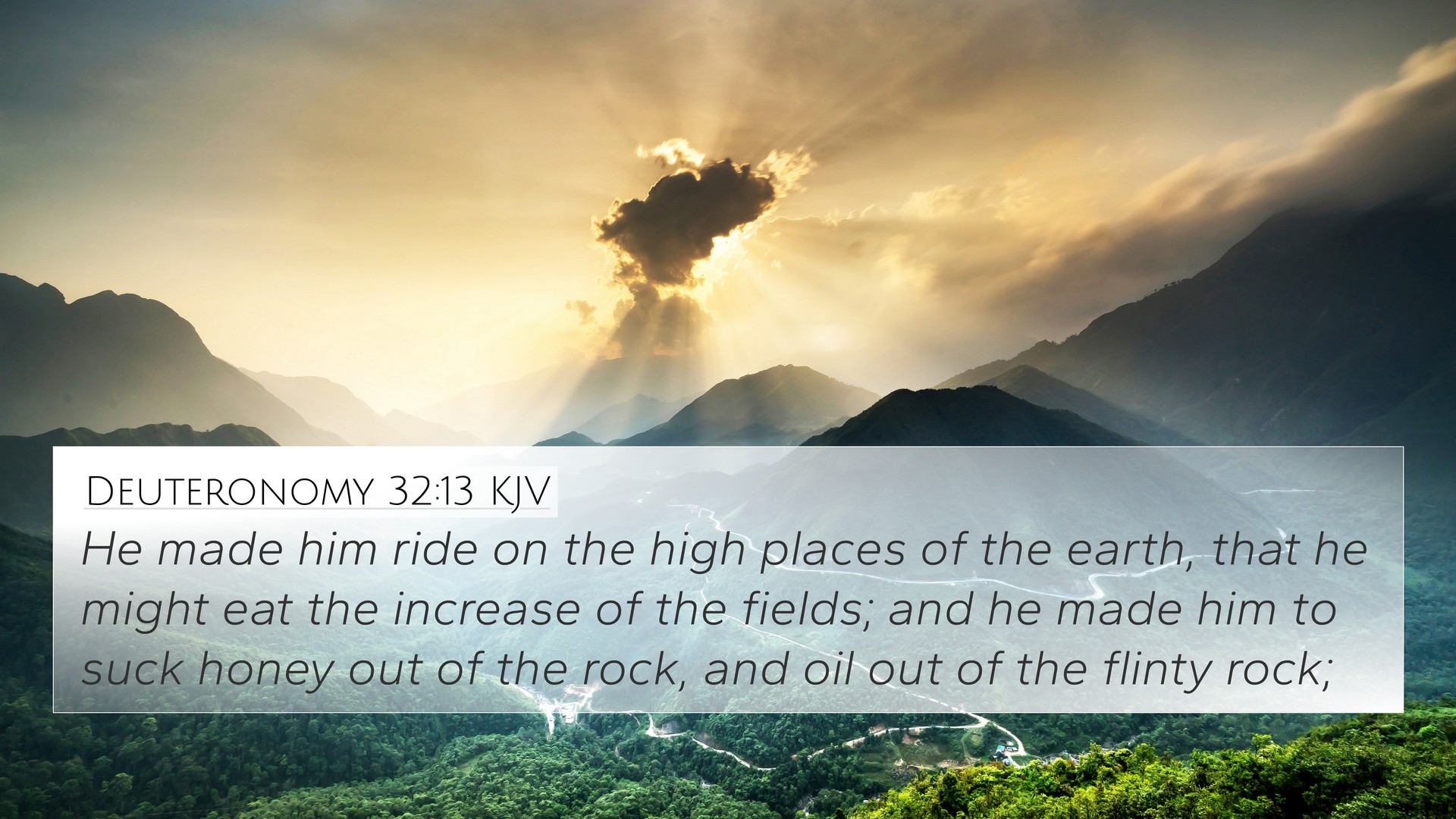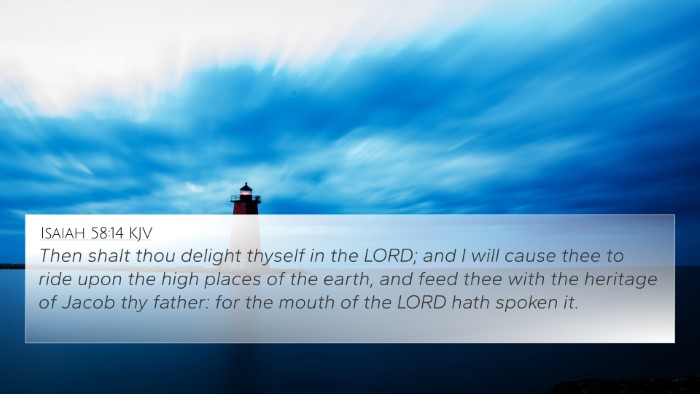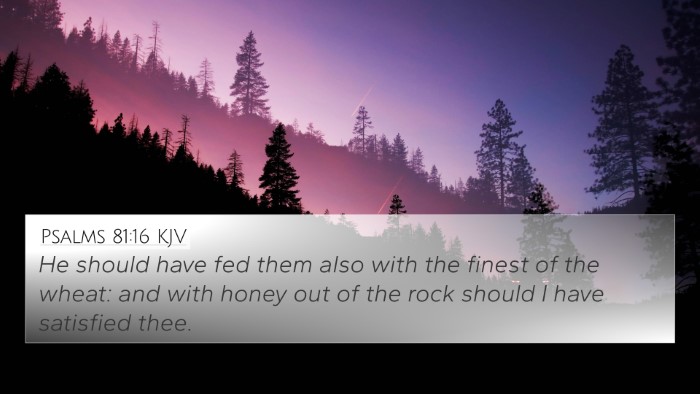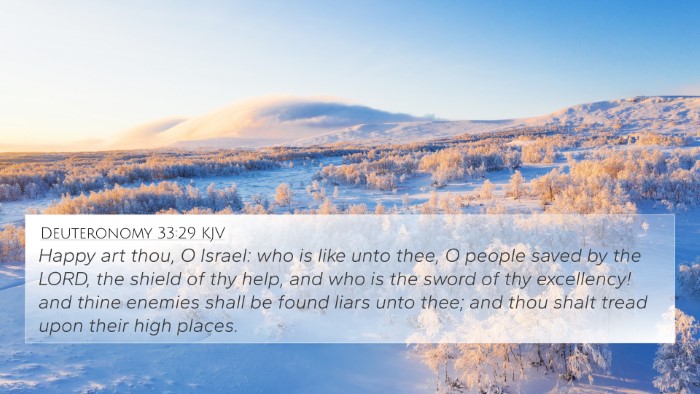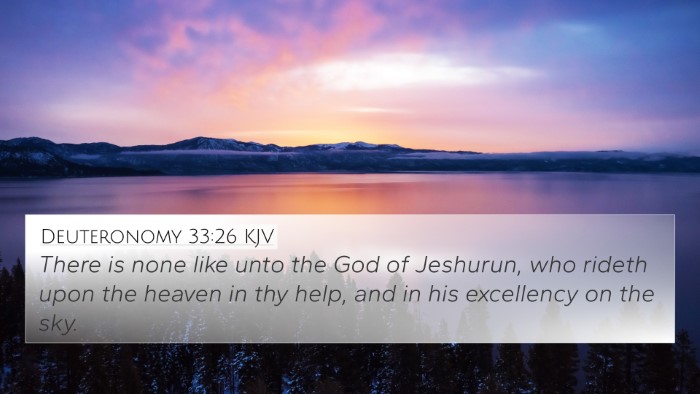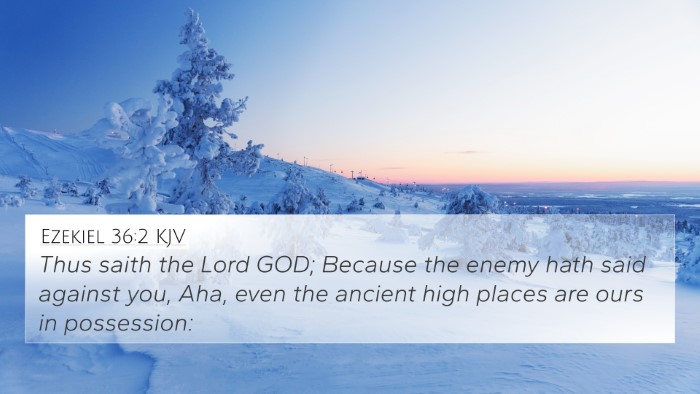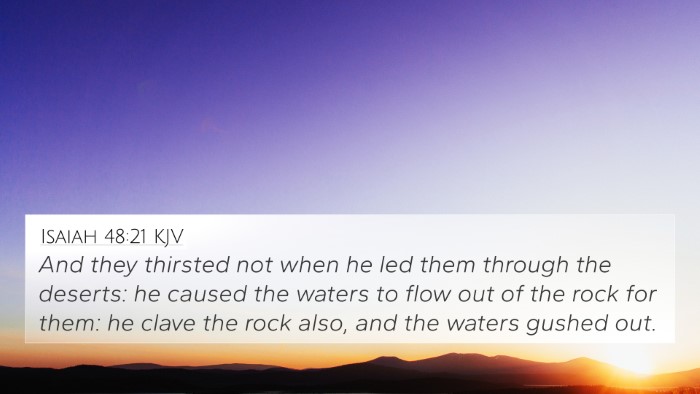Understanding Deuteronomy 32:13
Deuteronomy 32:13 is a verse that highlights God's providential care and guidance. It states,
"He made him ride on the high places of the earth, and he ate the increase of the field;
and he made him to suck honey out of the rock, and oil out of the flinty rock."
This verse is part of a larger song of Moses, which reflects upon Israel’s journey and God's
faithfulness. The imagery presents God as a benevolent provider, depicting His sustenance
and the abundance He offers to His people.
Meaning and Interpretations
Drawing insights from renowned public domain commentaries, we see several layered meanings
in this verse:
-
God's Sovereignty:
According to Matthew Henry, the verse emphasizes God's control over the
destiny of nations and individuals. The metaphor of "high places" signifies not only
elevation and honor but also God's ability to lift His people in times of need.
-
Providential Care:
Albert Barnes interprets this verse as a depiction of the nourishment
God provides. It illustrates the richness of blessings, even in challenging environments,
symbolized by "honey out of the rock" and "oil out of the flinty rock."
-
Spiritual Abundance:
In the view of Adam Clarke, the mention of extracting honey and oil
signifies the unexpected blessings that God can provide—a reminder that spiritual nourishment
comes from places we might least expect.
Cross-References and Related Verses
Deuteronomy 32:13 connects with various other scriptures that illustrate God's provision and
nurturing nature. Some relevant verses include:
- Psalm 81:16 - "But I would feed you with the finest of the wheat, and with honey from the rock I would satisfy you."
- Isaiah 49:10 - "They will neither hunger nor thirst, nor will the desert heat or the sun beat down on them."
- Matthew 7:9-11 - "Which of you, if your son asks for bread, will give him a stone?"
- Psalms 104:13-14 - "From your lofty abode you water the mountains; the earth is satisfied with the fruit of your work."
- Exodus 3:8 - "So I have come down to deliver them out of the hand of the Egyptians and to bring them up to a good and broad land."
- John 10:10 - "I came that they may have life and have it abundantly."
- Philippians 4:19 - "And my God will supply every need of yours according to his riches in glory in Christ Jesus."
Connections Between Bible Verses
The connections between these verses represent a core theme in the Bible: God’s unwavering
support and providence throughout the ages. The thematic links help to uncover deeper
understandings, revealing how God's character as a provider is consistently portrayed.
In studying these references, one can explore how the Old and New Testaments dialogue on
themes of sustenance, grace, and divine care.
Comparative Bible Verse Analysis
Engaging in a comparative analysis of Deuteronomy 32:13 alongside its cross-referenced verses,
an intriguing pattern emerges that enhances our Bible study experience. This highlights the
importance of cross-referencing biblical texts to uncover how the Scriptures affirm
each other through consistent themes and narratives.
Conclusion
In summary, Deuteronomy 32:13 serves as a reminder of God's lavish provision for His people,
manifesting richly through various biblical themes and connections. By recognizing these
bible verses that relate to each other, believers can cultivate a more profound
understanding of God's character and His intentions toward humanity.
Further Study
For those interested in exploring these themes further, using tools for Bible cross-referencing can greatly enhance your study experience. Utilizing a bible concordance or bible cross-reference guide is essential for identifying thematic links and deeper meanings within Scripture. This approach not only aids in personal enlightenment but also prepares one for sermon preparation and teaching.
